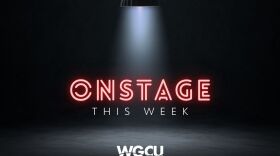Gender identity and bathroom use was a hot button issue in 2016. Last May, the Obama administration sent guidelines to the nation's public schools about restroom use for transgender students.
School districts - including several in Florida - have grappled with the issue. And the U.S. Supreme Court has now entered the debate agreeing to hear a case where a Virginia school district fought the directive.The battle over bathroom policy seems to be about much more than public facilities. For some, it's social change moving at an uncomfortable speed. Some school districts say it's appropriate to move at a cautious speed regarding policies, but Nate Smith, Director of Public Policy for the Gay, Lesbian, Straight, Education Network feels differently.
“You know when it comes to education it's a little bit different because adults have sort of come into their identity,” he said. “Students are often still figuring out what their identity is and when it comes to school policy in particular, the school has a responsibility to make sure that the students are safe so that they can essentially do what they are there to do in school, which is to learn and not be worried about where they're going to go to the bathroom."
The Obama directive was issued in May, but plenty of school boards fought back including in Florida.
In Marion County, the school board voted to require students to use the bathrooms that correspond with their sex at birth, and in Sarasota County, one school board member called the directive “government overreach.”
Smith contends policies regarding bathroom use should be decided at the federal level.
“It’s important to make sure that they are applied uniformly,” he said. “There are certain issues-especially in the education space- that are certainly best left to be decided at the state and local levels but I think when it comes to civil rights protections for Americans that those are best decided at the federal level.”
It was in October when the U.S. Supreme Court announced they will hear a lawsuit by a transgender student who was denied use of a restroom for the gender he identified as. Oral arguments could begin as soon as February or March. Smith said the court will be looking at a couple of issues.
“What they're essentially answering is two questions,” he said. “One is around administrative procedure and is whether the Obama administration followed proper administrative procedure in making that assessment and notifying schools about transgender students being treated consistent with their gender identity. And then the second question is really the crux of the question; whether transgender students are protected under the law to be treated consistent with their gender identity.
Before the election of Donald Trump, GLSEN said the advocacy organization was confident that the Supreme Court would rule in favor of the student. Smith said his opinion hasn’t changed.
“When you start really looking at the facts, then I think that it's hard for the court to rule otherwise,” he said. “I wouldn't be terribly surprised if they raised questions around the way the administration released the guidance, but we feel pretty strongly that the way that they did that was appropriate.
"I think when it really gets down to the rights of transgender people, the court will ultimately stand on the side of justice. There is a tradition in American history of the courts being there to protect minorities and I think that this certainly fits well within that tradition.”
Copyright 2020 WUSF Public Media - WUSF 89.7. To see more, visit WUSF Public Media - WUSF 89.7. 9(MDAyMTYyMTU5MDEyOTc4NzE4ODNmYWEwYQ004))







